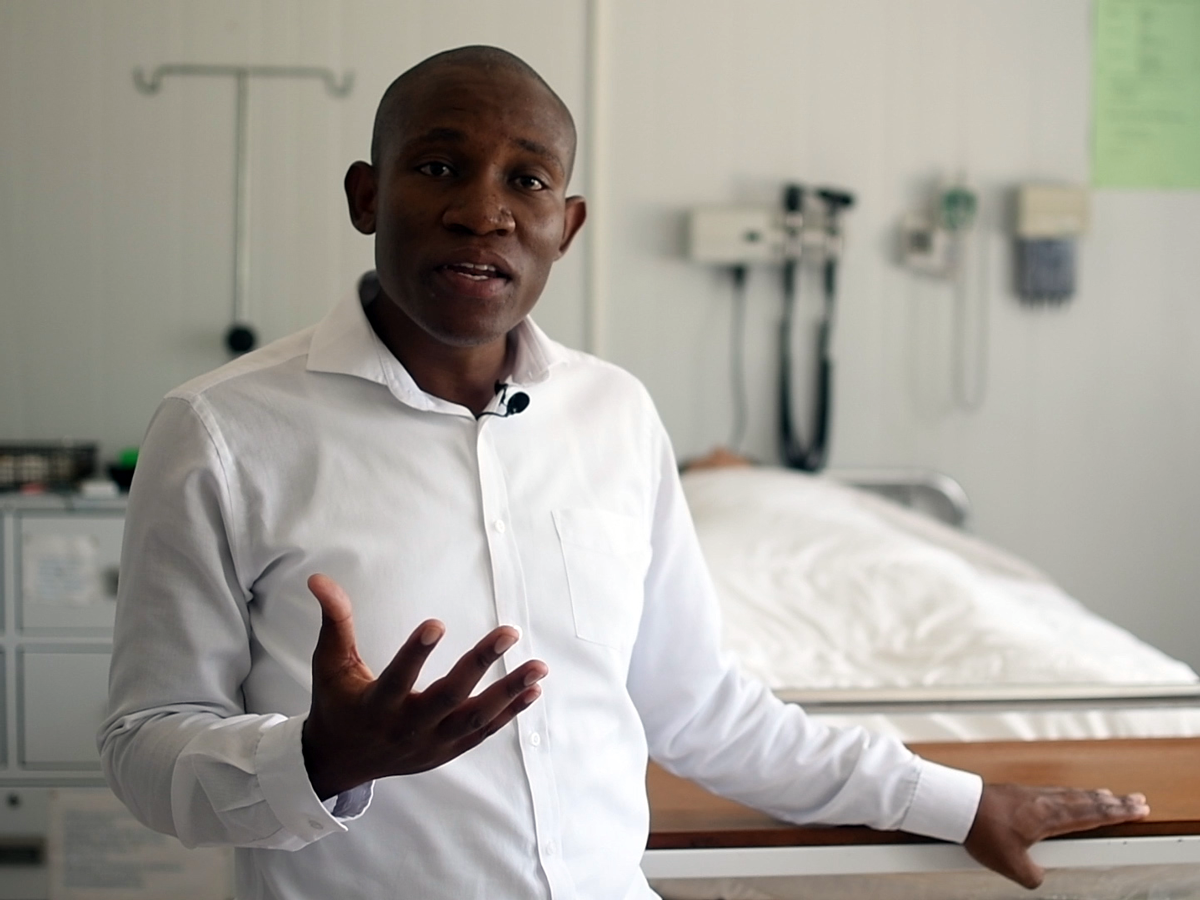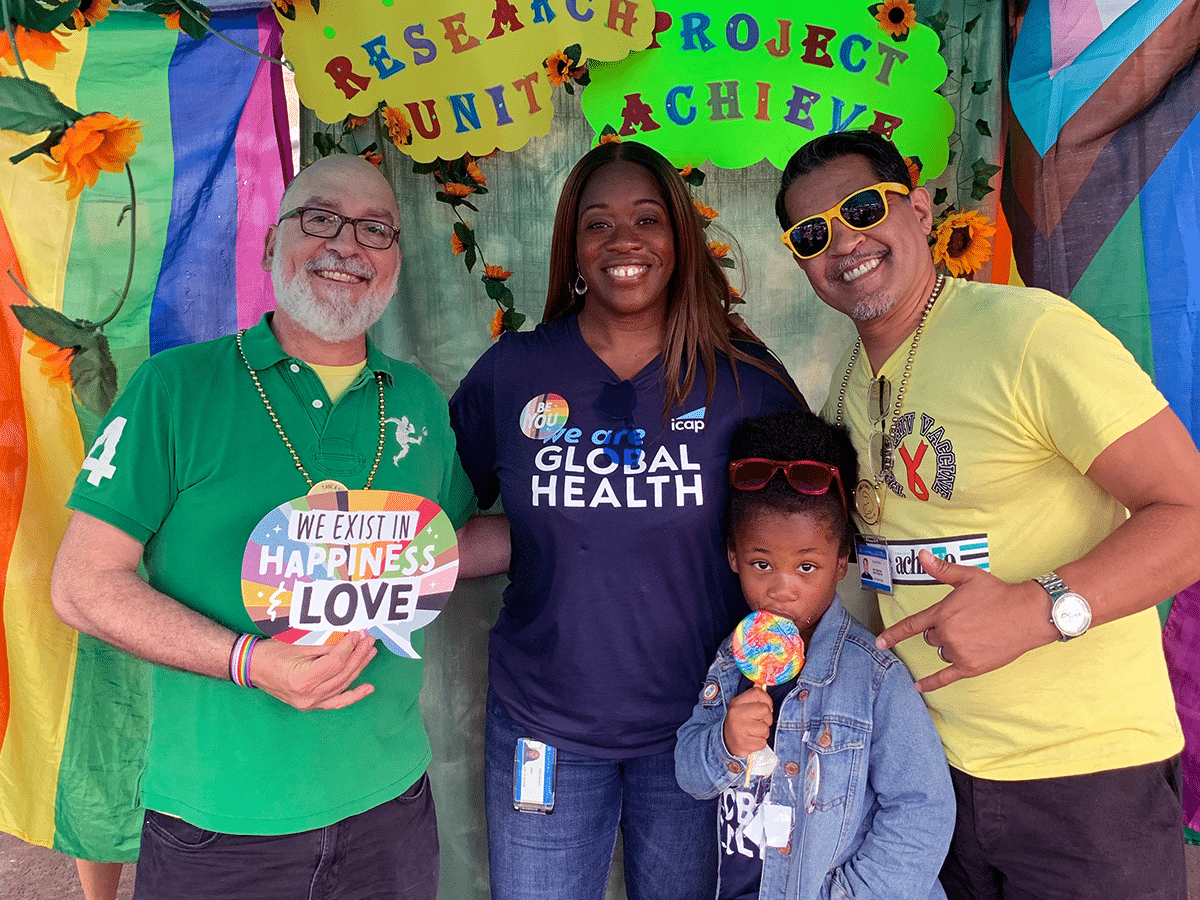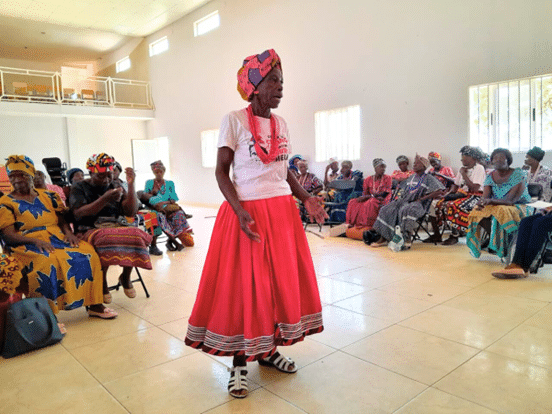The winter when Pule Solomon Moabi was 10 years old was a particularly harsh one. His family was unable to afford to heat their home in the mountains of Lesotho, and he contracted a serious case of pneumonia that landed the young boy in the hospital. It was during this convalescence, however, that he first encountered the power of nurses and began a journey that would lead him to become a certified nurse and midwife, complete his master’s in public health, publish two papers in nursing sciences, and start his PhD in nursing education—all while training Lesotho’s nurses of tomorrow at the Scott College of Nursing.
Moabi remembers the incident that marked the beginning of his bright career as a devoted nurse educator and researcher. In the course of his care at a small local hospital, Moabi remembers a nurse coming to visit him in the children’s ward and giving him scary news: that because his fever was rising, she would have to insert an IV into his arm. “Through communication, that nurse was able to persuade me to agree for her to insert the IV line into my vein. She took about an hour talking with me. That is when I realized that nurses are good. I thought then that I might be a nurse one day—and maybe even get the fancy uniform!”
With this seed planted, Moabi completed his schooling, while his mother started a new job in the administrative unit of Scott Hospital—the same facility where young Moabi had been hospitalized. As a young adult, Moabi spent more and more time on the hospital’s campus, watching nurses on their daily rounds as they cared for their patients. As he thought about his future, his mother encouraged him to follow his heart. Moabi looked back fondly on the nurses he had encountered at Scott Hospital as he recovered from pneumonia as a child, and as a young man while he waited for his mother to finish her shift in the Hospital’s administrative wing. Over time, he realized he had found his calling. He applied to nursing college and was accepted.
“Nurses are the largest health workforce here and they should be utilized more. We need nurses who will be able to provide safe and competent care to their patients.”
—Pule Solomon Moabi
He completed the three-year nursing program and, driven by a quest for a deeper knowledge in patient care, went on to become a certified midwife. He then worked at a rural clinic with no electricity, where he gained firsthand experience of how the scope of care for nurses in Lesotho had expanded to compensate for an acute lack of medical doctors. The eager young nurse and midwife continued working in public clinics and hospitals, while pursuing additional trainings and degrees in nursing education. This eventually led Moabi back to the same hospital where he had been hospitalized as a young boy and where he watched nurses caring for patients while waiting for his mother to complete her day at work.
Moabi now serves as the Clinical Supervisor at the Scott College of Nursing, where he educates nursing students in the college’s cutting-edge simulation lab. Funded through ICAP’s Nurse Education Partnership Initiative (NEPI), the simulation lab allows students to gain hands-on experience in post-partum suturing, blood pressure measurement, intravenous insertion, and other key clinical procedures. The simulation tools range from simple, realistic anatomical devices to lifelike, human-sized, computerized, and physiologically responsive mannequins that can do everything from give basic responses to express disappointment if they believe the clinician lacks appropriate bedside manner.
“What I have seen is that when my students who have been trained in the simulation lab go [to work] in a clinical setting, they are competent when providing clinical care and they treat the patients with due respect,” said Moabi. He credits these workplace habits to the rigorous training exercises he leads his students through, where nurses not only need to practice technical skills like drawing blood, but must also practice inter-personal skills. “I think [these exercises] have improved communication between the patients and my former students. In the simulation lab we emphasize communication so that when they get to the clinics or hospitals, they can speak with the patient.”
Through his doctoral research and his work as a nurse educator, Moabi is a fierce advocate for empowering nurses to better care for their patients and the communities they serve through skills-based practical training. He emphasizes that, with training, nurses can help fill the need for medical professionals to conduct routine patient care and treatment, including the management of HIV medication regimes. “Here in Lesotho, we have a shortage of medical doctors. Nurses are the largest health workforce here and they should be utilized more. We need nurses who will be able to provide safe and competent care to their patients. By providing competency-based education to my nursing students and through my doctoral research, I hope to contribute to the strengthening of Lesotho’s nursing workforce and improve health care across our country.”
A global health leader since 2003, ICAP was founded at Columbia University with one overarching goal: to improve the health of families and communities. Together with its partners—ministries of health, large multilaterals, health care providers, and patients—ICAP strives for a world where health is available to all. To date, ICAP has addressed major public health challenges and the needs of local health systems through 6,000 sites across more than 30 countries.








